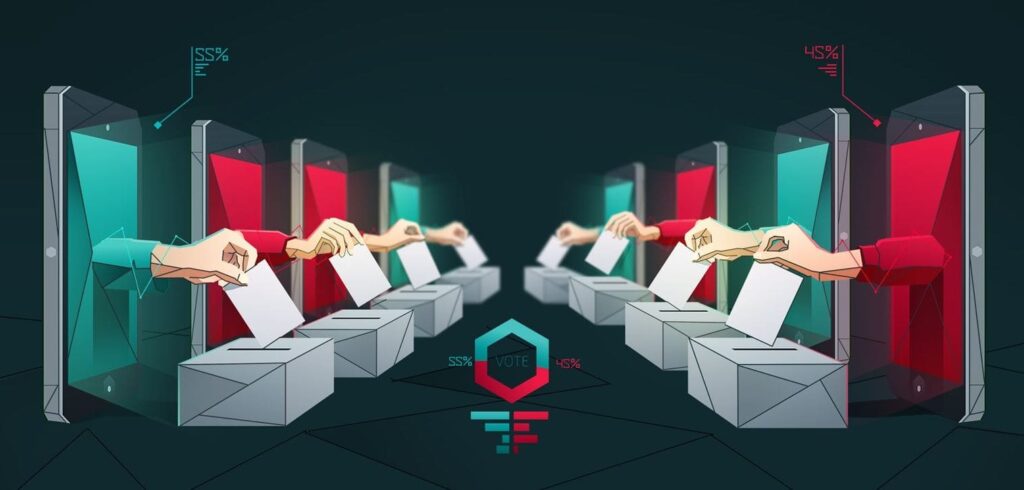Introduction
Liberal or authoritarian institutions may use advanced technologies to gain power. There are several ways in which this approach may be used to control democratic processes in the future. Digital tools may be used to influence people to practice their constitutional rights, such as voting. The future of democracy in the digital age will be impacted because these technologies may affect democratic processes, cause an increase in authoritarianism, and enhance the protection of human rights.
Democratic Processes
Digital technologies may positively or negatively influence democratic processes in the coming years. The future of democracy is threatened by the fact that people are becoming overly dependent on artificial intelligence (AI) and related technologies to analyze data and arrive at specific decisions.1 For this reason, some democratic processes are becoming less efficient in making good choices. An example is how digital technologies were used to influence the United States (US) presidential campaigns in 2016.2 This case relates to elections, an important democratic process, and shows that similar incidents may happen in the future if appropriate measures are not taken. Thus, these technologies may be used in the future to influence democracy and to control people.
1. Edoardo Quadri, “The Future of Democracy in the Digital Age,” The International Spectator 54, no. 4 (2019): 1, https://doi.org/10.1080/03932729.2019.1672321.
2. Quadri, “The Future of Democracy in the Digital Age,” 1.

Encouraging Authoritarianism
Adopting AI and similar technologies may crush democracy by encouraging authoritarianism. The use of AI to enhance facial recognition and monitor the actions of individuals leads to violations of human rights.3 While some governments use this approach to gain more power and control, its continued use will lead to further infringement of democratic rights in the future. In China and Zimbabwe, law enforcement agencies and public service sectors often use AI technologies to monitor people in an unlawful manner due to the lack of legal protections.4 The use of this technology in Zimbabwe shows that digital authoritarianism will pose a greater threat to democracy in the future since it is spreading globally, even to developing countries. Several governments and multilateral organizations help to fight digital authoritarianism by encouraging the equitable use of AI technologies across the world.5 These institutions form partnerships to protect democracy across the globe by monitoring violations of human rights and enhancing online censorship. Therefore, effective measures should be taken to protect democracy from AI-enabled authoritarianism.
3. United States Agency for International Development (USAID), “Artificial Intelligence Action Plan,” 2022, 6, accessed August 13, 2023, https://www.usaid.gov/sites/default/files/2022-05/USAID_Artificial_Intelligence_Action_Plan.pdf.
4. USAID, “Artificial Intelligence Action Plan,” 9.
5. USAID, 26.
The Use of Technologies to Enhance Democracy
In the future, digital technologies will help to better educate people on their rights and provide platforms for them to raise concerns. People will have more access to information about their democratic rights and related issues.6 In turn, they will be able to raise their concerns in public and engage with leaders to demand their democratic rights. Sociopolitical issues, such as majoritarianism, the spread of false information, and hate speech, will continue to pose challenges to democracy in the future.7 Governments need to adopt appropriate measures to address these problems. Lastly, people will increasingly use digital technologies to make their opinions public and enhance democratic mobilization.8 Consequently, people will have more online freedom, and their rights will be better protected. Therefore, the proper use of these technologies may help to enhance democracy in the future.
6. United Nations Development Program (UNDP), “Democratizing the Digital Space,” 2022, 9, accessed August 13, 2023, https://www.undp.org/sites/g/files/zskgke326/files/2022-07/UNDP%20Oslo%2C%20Digital%20Democracy%2C%2056032%20FINAL_v3.pdf.
7. UNDP, “Democratizing the Digital Space,” 10.
8. UNDP, 10.
Conclusion
Democracy’s future in the digital age will be impacted by changes in democratic processes, increased authoritarianism, and the use of technologies to protect individual rights. Voting and other democratic rights may be manipulated if proper protective measures are not taken. Several countries, such as China, have adopted facial recognition technologies and other AI tools to extract data. The effective use of technologies to educate people on their rights and to mobilize them will help to protect democracy. Therefore, guardrails should be developed on the use of digital tools so as to enhance democracy in the future.
Bibliography
Quadri, Edoardo. “The Future of Democracy in the Digital Age.” The International Spectator 54, no. 4 (2019): 1–4. https://doi.org/10.1080/03932729.2019.1672321.
United Nations Development Program (UNDP). “Democratizing the Digital Space.” 2022. Accessed August 13, 2023. https://www.undp.org/sites/g/files/zskgke326/files/2022-07/UNDP%20Oslo%2C%20Digital%20Democracy%2C%2056032%20FINAL_v3.pdf.
United States Agency for International Development (USAID). “Artificial Intelligence Action Plan.” 2022. Accessed August 13, 2023. https://www.usaid.gov/sites/default/files/2022-05/USAID_Artificial_Intelligence_Action_Plan.pdf.


